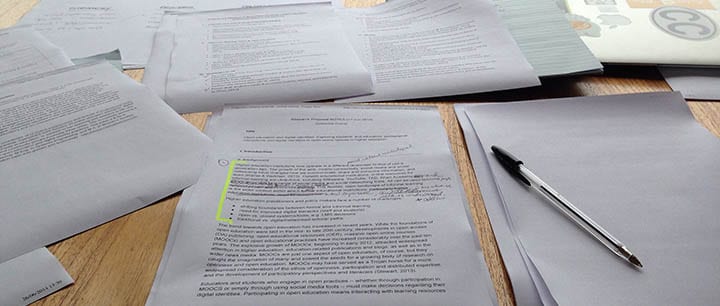Worried about an upcoming writing assignment? Here, Tampa, FL tutor Anna M. reviews the steps to writing a research paper that will help you earn an “A”…
Starting as early as middle school, students are writing research papers. The first time your teacher asks you to write a research paper, you might have no clue where to start. This article will give you systematic instructions for writing a research paper.
1. The Topic
The first, and arguably most important, step to writing a research paper is deciding on the topic. Of course, if your professor gives you your topic, that makes things much easier, but usually you will not be that lucky.
A good topic will:
• Be interesting to you
• Be relevant to your class
• Have several legitimate sources related to it
Most people do not write research papers for fun. So, in order to make this assignment easier on you, select a topic that you enjoy. For example, if the paper is for an English class and your favorite book is To Kill a Mockingbird, write it on that. If your favorite animal is giraffes and the paper is for a biology class, write it on the behaviors of giraffes.
If you are in a class that requires a research paper on something you’re not interested in, then at least write the paper on something that will benefit you in the future. For example, if you are in an economics class and have to write a paper, but find economics incredible boring, try writing the paper on how to make a budget, or current economic events in your country.
Another important thing to consider when you choose your topic is the amount of related sources that exist. For example, writing a research paper on water quality would be a good idea because there are hundreds of research papers published on this topic from established universities around the world. However, writing a paper on how your astrological sign affects your life would not be a good idea because there are few research papers published on this topic.
2. The Question
When you write a research paper, you are basing it off an initial question, which will be the title of your paper. This question should give the reader a general idea of what the focus of the paper will be. For example, instead of writing your paper on “Flavors of ice cream,” write it on “What are the preferred flavors of ice cream among a focus group?” Instead of “Elephant behaviors,” write it on “What are the normal behaviors of African elephants during the African dry season?”
3. The Research
Before you write a single word of your paper, you need to educate yourself on the topic. A good place to start your research is online. Avoid websites that can be easily edited by the public, as well as any social media sites. The best online sources have references for all of the information. The websites of established research journals will also have good information, as well as websites run by professors. Another good place to do your research is university or college libraries. Most schools offer temporary library cards to high school students. These libraries offer much more information than your local public libraries, so take advantage of this if possible.
4. Writing the Paper
At this point, you have your question and are educated on the topic. The rest of the process should be easy. All you have to do now is show your professor that you know what you are talking about in an organized fashion.
A good general outline of your paper should be:
- Introduction: State your question, introduce your argument (if you have one), mention some of your sources, and give the reader a general idea of what the paper will be about
- Background: Explain all of the general knowledge you gained about this topic (this should be multiple paragraphs)
- Method: Only include this if you performed an experiment in order to gain information for your paper — list all of the steps you took in your experiment
- Results/analysis: Same as above, only include this if you performed an experiment — include data or charts and any statistical analysis
- Argument: Only include this if your paper is argumentative — present your standpoint on the topic and explain why you think you are correct
- Discussion: If your paper is based off an experiment, explain your results; if it is an argumentative paper, introduce some counterarguments and show why you think you are more correct in your beliefs
- Conclusion: Tie all of the other parts together
- References: MLA or APA formatting
Of course, not all research papers are the same. You may feel the need to combine your discussion and conclusion, or have the topic of your paper not be formatted as a question. Always look to your teacher if you have a specific question about the format of your paper, and if your topic is acceptable. Other than that, these steps to writing a research paper will get you on the right track!
 Anna M. tutors in Chemistry, Algebra, Calculus, and more in Tampa, FL. She is a Chemistry major at the University of South Florida, and has experience tutoring elementary up to high school students. Learn more about Anna here!
Anna M. tutors in Chemistry, Algebra, Calculus, and more in Tampa, FL. She is a Chemistry major at the University of South Florida, and has experience tutoring elementary up to high school students. Learn more about Anna here!
 Photo by catherinecronin
Photo by catherinecronin
Suzy S.

